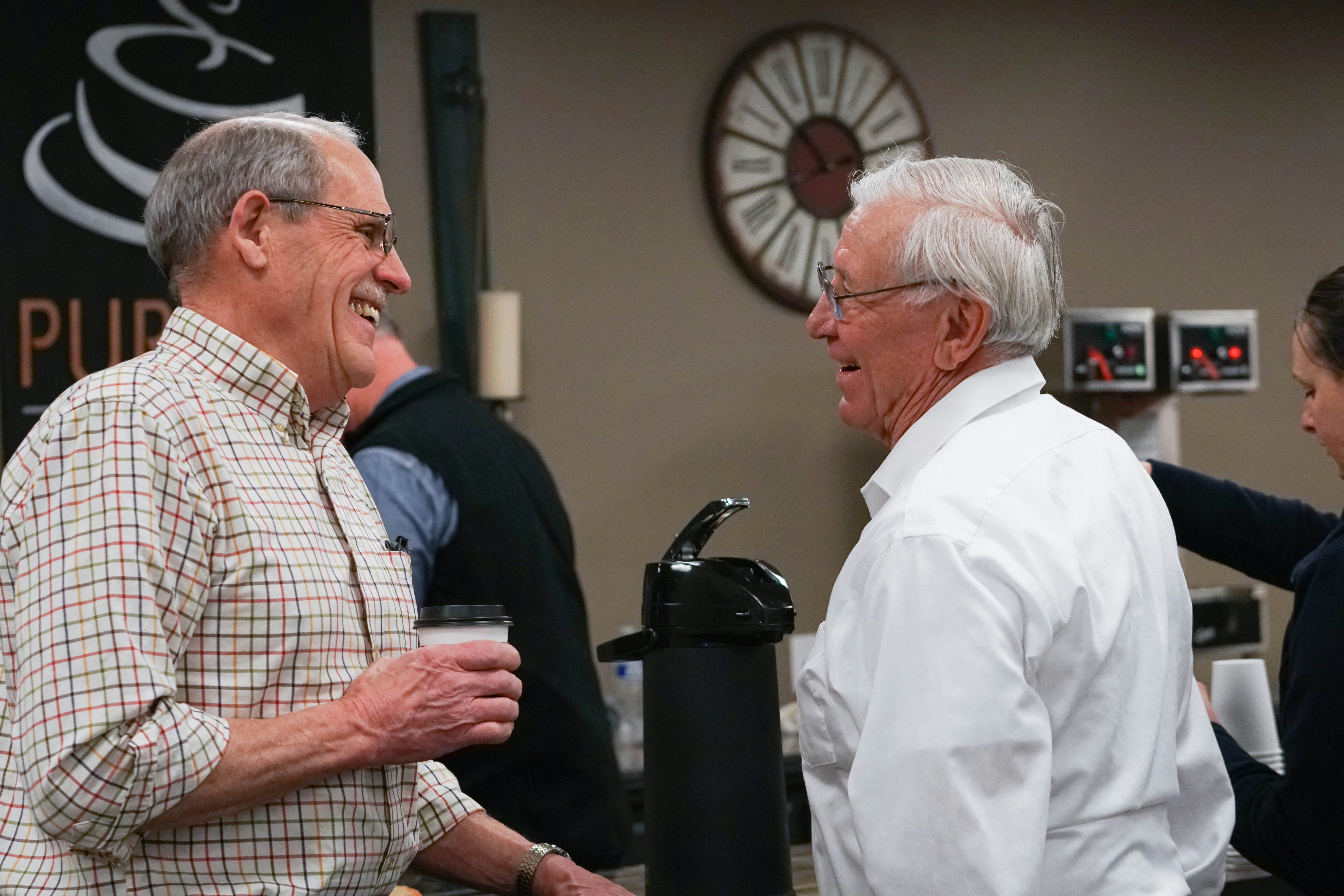In Defense of Old Guys

Every private, Christian school in America has an underpaid cohort of young, unmarried and childless teachers who are called on to do all kinds of things that their older colleagues who are married with children are either unable or unwilling to do. I was once one of those teachers. But there’s another kind of teacher whose value is easier to overlook: the late career teachers, or whom I call affectionately, “the old guys.” Despite the gendered term, “the old guys” is a cohort made up of men and women who have been teaching for more than 20 years, often at the same school. As I approach the middle of my career—and I identify more and more with the “old guys” than I once did—I find myself increasingly defensive of the long-tenured stalwarts on a school’s faculty.
Early in my career, I worked at a school that trimmed expenses by offering a generous financial buy-out to its late career teachers. The goal was to encourage veteran faculty to retire a few years earlier than they might have otherwise planned and replace them with entry-level teachers who were willing to accept much lower salaries. Since faculty salaries constitute the single largest number in any school’s budget, this would save the school quite a bit of money. It was an enticing one-time package, and a number of my colleagues took advantage of it, opting to retire at the end of that school year. In a single administrative act, the school lost more than 200 years of experience.
When we returned in the fall, it was not the same school.
In some superficial ways, the school was a nicer place to be. Older, more experienced teachers can be grumpy. They are set in their ways and can be resistant to change. Generally, they don’t have much patience for interdepartmental collaboration or chaperoning overnight student trips. They can be short-tempered with their younger colleagues. When we came back, I felt freer to speak my mind at faculty meetings without worrying that I was about to say something stupid and get called out by a wiser and more experienced colleague.
But after those teachers retired and we lost more than two centuries of experience, the school was also a worse place to be. This might be worthy of reflection for those who are in leadership positions as presidents, headmasters and board members at private, Christian schools that are facing similar budgetary decisions.
By and large, experienced teachers are conservative in their approach to education. They are far less likely to adopt zeitgeisty fads (like 1:1 devices in the classroom, or socio-emotional learning). Experienced teachers are far more likely to seamlessly and invisibly uphold standards of academic excellence, decorum, and dignity in the building without relying on the school’s disciplinary apparatus or support from the administration. They are far less likely to compromise on mission integrity, if only for the fact that they have more job security than rookie teachers. The young teacher will be tempted to say the politically correct thing rather than the True thing if the True thing is likely to be unpopular or draw the ire of the students, or a particularly powerful parent. By contrast, the experienced teacher feels far less pressure to compromise on the Truth. The experienced teacher can speak honestly with students, parents, fellow teachers, administrators, and board members; the rookie teacher cannot.
The experienced teacher has an intuitive sense—built over years in the classroom—for when half-baked programming dreamt up by well-intentioned but less experienced staff members is bound to fail. They can counsel young teachers about how to solve problems that crop up in the classroom, problems that young teachers would never feel comfortable sharing with the administrator tasked with writing his or her performance reviews. Experienced teachers can advise a rookie teacher about which student complaints about the difficulty and amount of work are worth taking seriously, and which ought to be ignored. Experienced teachers provide a stability to the school and its identity that brings alumni and their families back year after year and decade after decade, bringing new students and financial contributions along with them. Nobody goes to Homecoming to sit at the same tables they sat at when they were 14, but plenty of people go to Homecoming to visit with the beloved Latin teacher they had 25 years ago.
This leads to the main point of this article: there is a direct connection between faculty compensation and both mission fidelity and academics. One of the main reasons why many private schools are currently slow-moving disasters in one or both of these areas is because those schools do little to retain teachers through the late stages of a career. They have high rates of faculty attrition as teachers either leave the school or the profession entirely in search of a living wage. As such a school grows in enrollment, it is forced to bring in people who are questionably on-mission or less than effective teachers because, at the end of the day, a school needs warm bodies in classrooms to supervise students. It is an inevitability that a school that has to continually renew its faculty every 3-5 years will be forced to make compromises in order to staff the building.
Once that starts happening, the school eventually reaches a tipping point where even the most well-intentioned and courageous administrators are powerless to control what actually happens in the classroom. That’s how once-strong Christian schools end up taking their marching orders from the zeitgeist, and it happens more quickly than those who are not in the classroom might think.
As Joshua Gibbs likes to point out, the only way to prove something is important is to lavish time and money on it. Experienced teachers are expensive. They get married, and they start having families. If the teachers at your school have to choose between providing for their families and working for your school, many will eventually leave. When enough of your veteran teachers decide to jump ship, it’s only a matter of time before your school starts resembling the other worldly schools down the road. This is the faculty death spiral that has helped to hollow out many once-venerable schools that are now shadows of their former selves.
There are lots of things that compete for a place in any school’s limited budget, but the nicest buildings, the slickest marketing campaigns, the largest student support staff and the highest performing athletic teams will do little to stem the atrophy of mission and identity that comes with the loss of the old guys. People in positions of leadership at Christian schools would be wise to remember that when thinking about budget priorities.
I’m no longer surprised by the fact that the best schools in the country find creative ways to retain their most experienced teachers. I understand why the school I taught at offered the generous financial buy-out that it did. It was almost certainly the right thing to do for the school’s budget, but I do wonder if the people who made that decision realized just how much it ended up costing the school in the long run.
Randy Aust
Randy teaches Theology and History at Saint John Paul the Great Catholic High School in Denver, Colorado where he lives with his wife Kasey and their four children.








